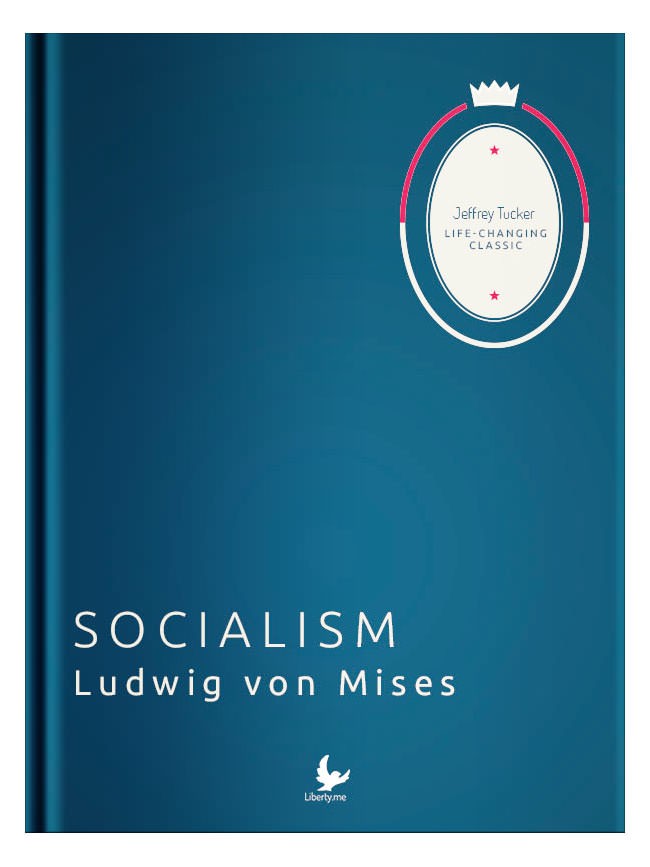
Socialism
This book is a legendary classic, but sometimes that can be the worst possible fate to befall a work. It’s a tragic thing when a great work becomes a symbol or a slogan, rather than something people really study and learn from. Based on an informal poll I took yesterday (“Have you actually read Socialism?”), I fear that this is what has happened to this book.
This is not a book for the shelves. It is a book to read and engage right now, right where you are. It is a book that explains vast amounts of the reality we are living right now. It was written in 1922, but it works as a decoder to today’s headlines.
How can that be? Most people assume that socialism has somehow been defeated. Not so. It has spread out all over the world in different forms. Mises’s book addresses every conceivable form of the socialist idea. He shows you how to find the errors in Obamacare, QE3, the education bubble, the U.S. imperial wars, environmentalism, and so much more. There are insights on every page.
To understand the significance of the work, you have to imagine this scene from Vienna in the early 1920s. Practically every important intellectual was a socialist. There were different varieties, left and right, but they all agreed that free markets had flopped and government planning was the scientific answer.
The brilliant young monetary economist Ludwig von Mises had just finished writing a book on World War I and its ghastly horrors. Why would Europe want to prolong the suffering of war? That’s what socialism would do, he realized. It would attack private property, make life impossible for business, wreck the ability of people to manage their own lives, and even threaten the integrity of money itself.
The problem and the answer required serious intellectual work. What could Mises say or write that would put an end to all this crazy dreaming about socialism? The answer must have come to Mises at some point in 1919. He looked around at the real way that business struggled to provide society with goods and services. Socialism intended to take it all away.
Mises made his first case in a journal article that appeared in 1920. Jaws dropped. How could this intellectual attempt to resurrect what everyone knew was dead? How could he dare to dismiss what practically everyone believed in?
Two years passed. Mises’s article was gaining traction. Then the blockbuster book appeared. It was a full-scale analysis that covered far more than economics. This book covered war, taxation, family, money, trade, medical care, education, the environment. Once the model was in place, he found a thousand applications. His conclusion violated every taboo. Socialism in all its forms leads to waste, confusion, poverty, and the end of civilization, he wrote; only free markets can satisfy the demands of economic rationality.
No book like it had ever appeared. He was not just swimming against the tide. He was condemning the whole of the intellectual trend the world over. And he did it with astonishing clarity and sweeping comprehensiveness. No subject area was left untouched, not even monetary policy.
Mises might as well have been addressing Ben Bernanke when he condemned how loose money and manipulation destroy the signaling system of the interest rate. Quantitative easing “leads everyone to consume his fortune; it discourages saving, and thereby prevents the formation of fresh capital.” It drains money from real enterprise to pour it into finance capital, thereby giving rise to “popular frenzy” to smash the capitalists.
To be sure, Ben Bernanke doesn’t think of himself as a socialist. But socialism doesn’t just mean nationalization of capital. It can be the nationalization of money and the attempt to plan monetary policy the way the Soviets tried to plan wheat production. This is the pedigree. All government controls stem from the same intellectual root. They all threaten freedom, the market order, and civilization itself.
How is it possible that Mises’s Socialism would have lost none of its power after 90 years? That’s the mark of brilliance. Even now, the book amounts to a scientific but searing attack on nearly every political ideology except that which grants people the right to use their property as they see fit.
Other Books From - Liberty.me Books
Other Books By - Ludwig von Mises
Back

 How They Succeeded
How They Succeeded  The Voluntaryist Creed
The Voluntaryist Creed  The Shadow Riders
The Shadow Riders  War Is the Health of the State
War Is the Health of the State  Young Pioneers
Young Pioneers  Never Ask the End
Never Ask the End 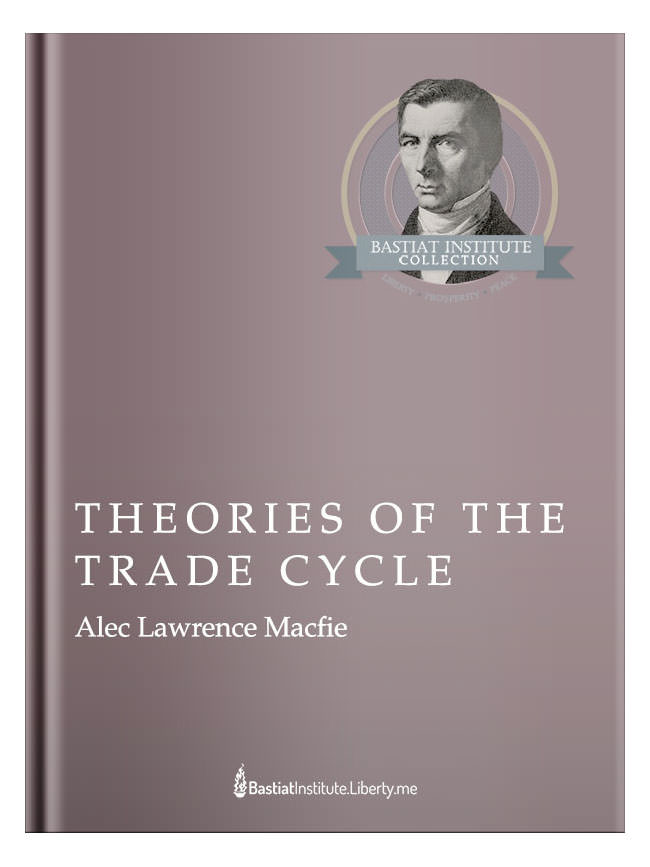 Theories of the Trade Cycle
Theories of the Trade Cycle  Our Enemy, the State
Our Enemy, the State  Banking and the Business Cycle
Banking and the Business Cycle  The Economic Basis of Class Conflict
The Economic Basis of Class Conflict 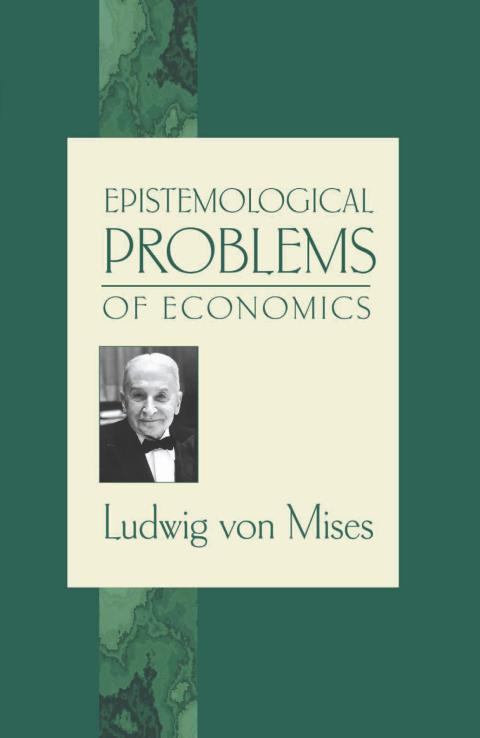 Epistemological Problems of Economics
Epistemological Problems of Economics  The Ultimate Foundation of Economic Science
The Ultimate Foundation of Economic Science 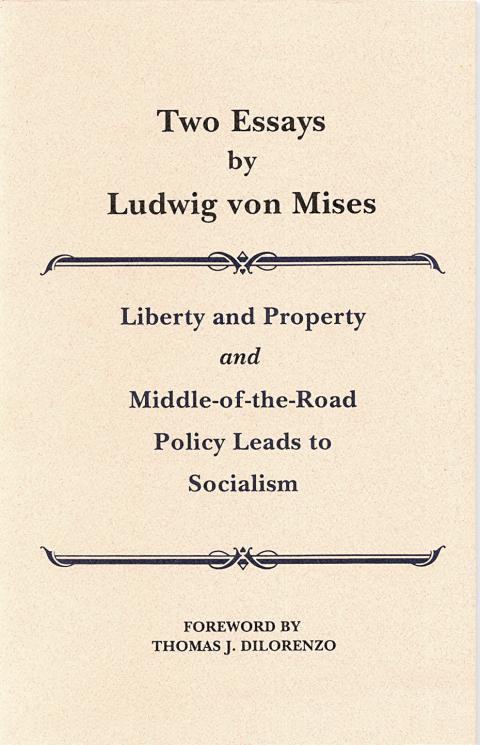 Two Essays: Liberty and Property and Middle of the Road Leads to Socialism
Two Essays: Liberty and Property and Middle of the Road Leads to Socialism  Theory and History
Theory and History  The Theory of Money and Credit
The Theory of Money and Credit 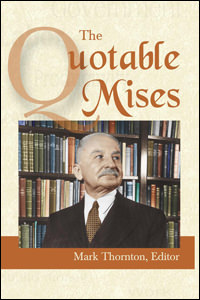 The Quotable Mises
The Quotable Mises  The Free Market and Its Enemies: Pseudo-Science, Socialism, and Inflation
The Free Market and Its Enemies: Pseudo-Science, Socialism, and Inflation 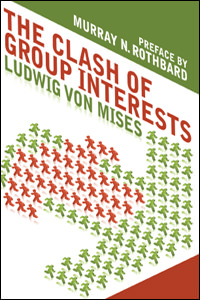 The Clash of Group Interests and Other Essays
The Clash of Group Interests and Other Essays  The Causes of the Economic Crisis, and Other Essays Before and After the Great Depression
The Causes of the Economic Crisis, and Other Essays Before and After the Great Depression 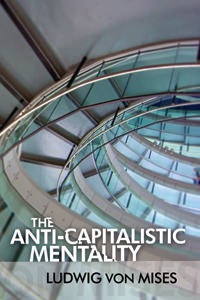 The Anti-Capitalistic Mentality
The Anti-Capitalistic Mentality